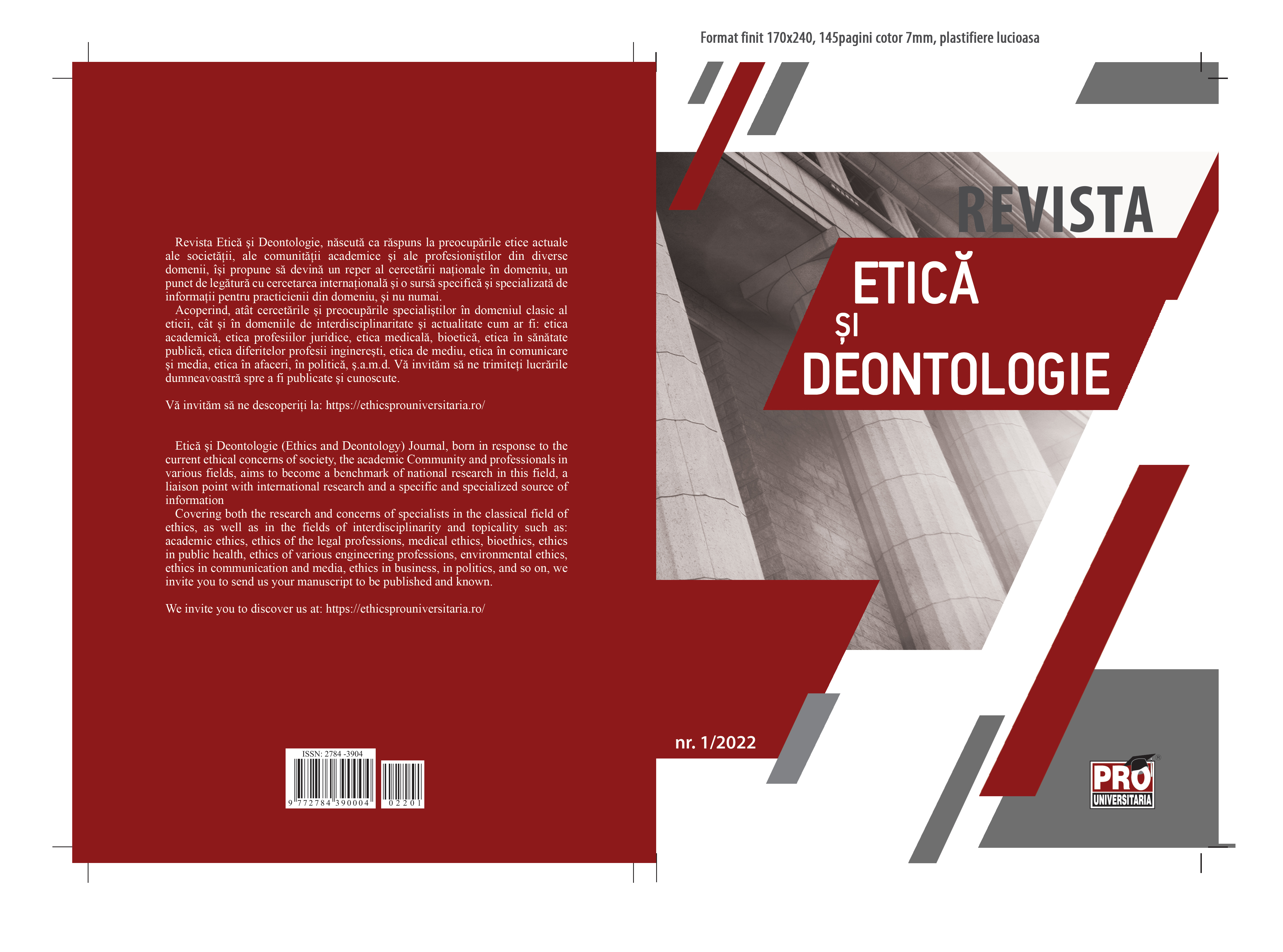
We kindly inform you that, as long as the subject affiliation of our 300.000+ articles is in progress, you might get unsufficient or no results on your third level or second level search. In this case, please broaden your search criteria.

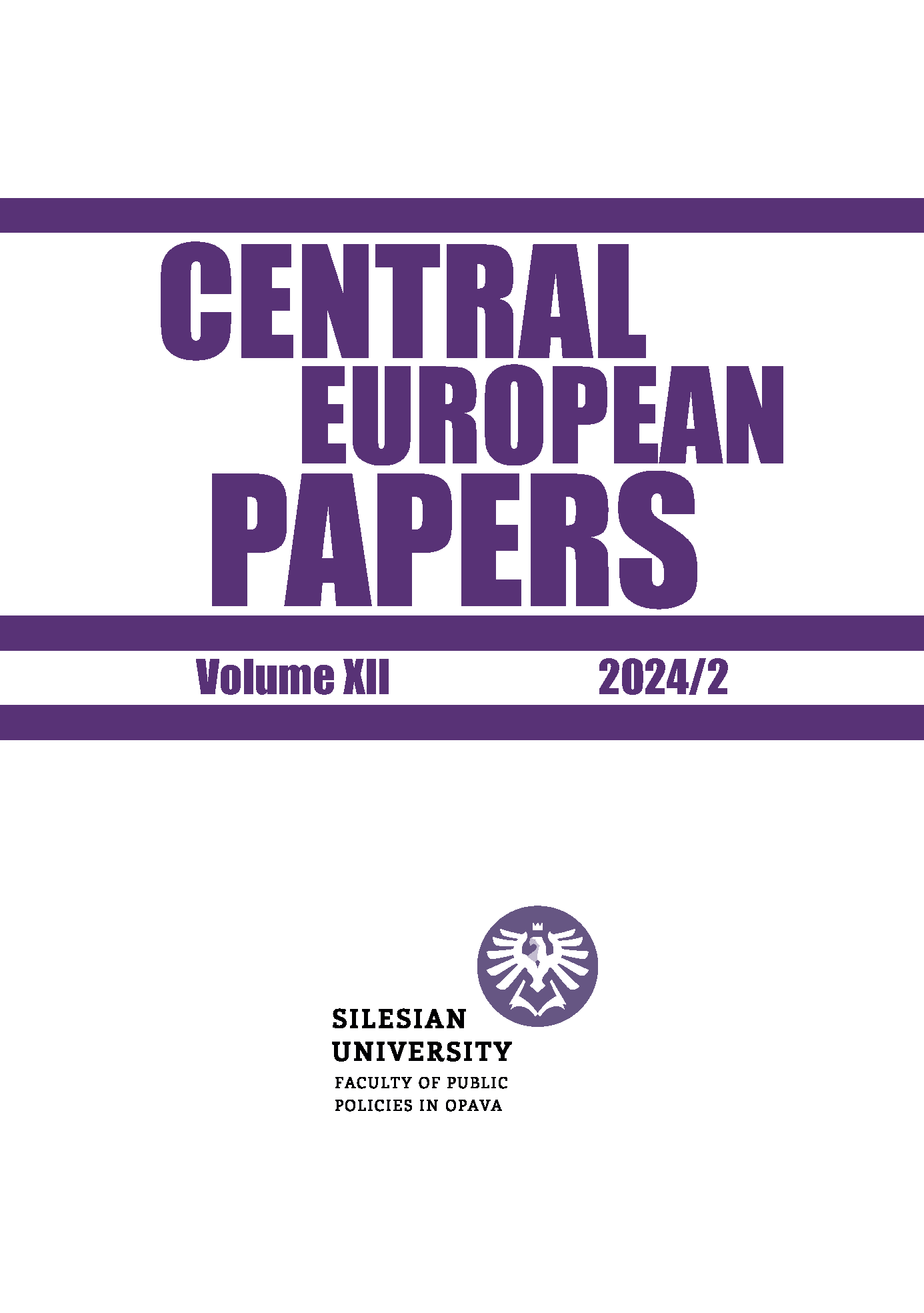
The article is focused on specific features of employment relationships in municipal self-government with critical reference to key problems and their practical consequences in application practice. The author pays attention to the labour law claims of elected officials in municipal self-government, which in terms of current legislation are neither systematically nor comprehensively addressed. It points out the complexity of the mutual relations of the Labour Code as a lex generalis legal norm and special regulations that partially regulate individual labour law issues of elected officials, which causes opacity and variability in the interpretation of individual provisions of legislation. Attention is also paid to competency relations between the authorities of municipality.
More...
As extensively discussed in the first part of this study, art. 30 of the Criminal Code, placed within Chapter III of Title II, alongside other concepts bearing the name “causes of non imputability”, distinguishes between error regarding the constitutive elements of the offence and error regarding the illicit nature of the deed. However, the error presents an element of specificity, as only the error regarding the illicit nature of the deed represents a veritable non imputability cause. Given this context, the second part of the study analyses the effects that the error regarding typicity produces in relation to the general characteristics of the offence. From the corroboration of paragraphs (1) and (2) of art. 30 of the Criminal Code, the invincible error will result in the removal of guilt as a characteristic of the offense, both in the form of intent and negligence, while the vincible error will exclude only intent, leaving open the possibility of incurring criminal liability for an offence committed by negligence, if it is also incriminated in such a manner. Thus, the error regarding typicity produces effects on the second characteristic of the offence – culpability. In the context of analysing the effects, we have focused particularly on foreign specialized literature, as well as on the decisions of the courts, revealing how they relate to the criteria for distinguishing between invincible and vincible error. At the same time, we aimed to conduct a comparative approach to the legal status of error, as regulated by the Romanian Criminal Code, with other criminal systems, providing examples of decisions from courts of law belonging to these systems. Another substantial part of the study centres around the relationship between the error of fact regarding typicity and other criminal law institutions – legal circumstances, criminal participation, justification causes, causes of non imputability – as well as the manner in which these interconnect. At the end of the article, we analysed various particular hypotheses of error of fact regarding typicity: error in personam, error in objecto, aberration causae, aberratio ictus, aberratio delicti, error regarding the means used to commit the deed. By referring to each particular situation, the article extensively presents the divergent positions existing in the specialized literature regarding the legal treatment that should be offered to each hypothesis, identifies the arguments of the proponents of each opinion, and finally highlights the position that judicial practice adopts considering the specialized literature discussions. The analysis of the error of fact regarding the constitutive elements of the offence, understood as a distortion of the psychic process, has focused on the dimension of the agent’s subjective conception at the moment of committing the deed. The study of this criminal law institution has attempted to find an answer to the question: is it sufficient for the agent to have erroneously represented reality and not understood the result of their action, in order to remove criminal liability? The answer to this question could not be provided except after a complex evaluation of all the circumstances of the case, taking into account the factors that generated the error, the type of deed committed, the element to which the error pertains, the possibility of avoidance etc. To support the provision of an adequate answer, the legislator, the specialized literature, as well as the courts have developed the conditions under which the error can operate, the elements that can constitute the object of the error, the classifications that influence the legal status of the error’s effects, the way in which the effects influence the characteristics of the offence, as well as the methods of solving particular hypotheses.
More...
The present study aims to analyse the money laundering offence provided by art. 49 of Law no. 129/2019 from the perspective of the objective side of the offence. Therefore, during this study, an attempt was made to clarify the notions that the Romanian legislator uses in the content of the incrimination. At the same time, analysing the interpretation and application of the incriminating rule in the judicial practice, various legal issues were analysed, in particular the relationship between the modalities of committing the offence of money laundering [for example, the relationship between art. 49 para. (1) let. a) and art. 49 para. (1) let. b) or let. c) of Law no. 129/2019] or the relationship between the money laundering offence and the offence of concealment.
More...
Through a preliminary ruling rendered in a relatively recent case (case C 107/23 PPU [Lin]), the Court of Justice of the European Union requires Romanian national courts ”to disapply a national standard of protection relating to the principle of the retroactive application of the more lenient criminal law (lex mitior) which makes it possible, including in the context of appeals brought against final judgments, to call into question the interruption of the limitation period for criminal liability by procedural acts which took place before declaring the effects of such acts invalid”. The present article aims to analyse the potential problems which may arise from this ruling with regard to the interdiction of retroactive application of a more severe criminal law. We shall first try to analyse the connection between the two principles – that of legality of incrimination and sanctioning and the lex mitior principle –, in order to conclude whether and under what circumstances disapplying the principle of retroactive application of the more lenient criminal law can infringe upon the principle of legality. Once having identified the infringing circumstances, we shall try to analyse to what extent the preliminary rulings of the CJEU can fall within the scope of the principle of non retroactivity of criminal law, when the infringing circumstances mentioned above have been triggered by such a ruling.
More...
The aim of this study is to analyse the different situations in which a victim of a crime can be considered a vulnerable person. Another purpose of this study is to propose a theory regarding a type of secondary vulnerable victim in certain situations, which have been described thoroughly by the European Court of Human Rights in its decisions regarding torture, inhuman or degrading treatment. Thirdly, the present article analyses the situation of transgender persons and of those suffering from AIDS. Finally, this study refers to the legal situation of immigrants and to the possibility of regarding them as vulnerable victims in criminal law.
More...
In the present material we aim to analyse the extent to which the commission of a crime following the consumption of drugs can lead to a reduction or even exoneration of criminal liability. The focus of the analysis will be on whether it is possible to establish the causes of non liability for irresponsibility and intoxication following both long term and one time consumption of drugs and also on the limitations of the applicability of the principle of actio libera in causa in such situations. With regard to the medical consequences of drugs on the human body, the debate will be conducted from both a medicine and legal perspective, particularly psychiatric, and a judicial perspective. In order to gain a deeper understanding of the subject, the method in which this issue is dealt with in German and Spanish criminal law will also be examined.
More...
The Cluj Court of Appeal admitted the request to transfer the case and ruled that in relation to the objective criteria developed in the case law of the European Court of Human Rights, the fact that the judge who discussed with the representative of the Public Ministry, outside the procedural framework, about the same legal issue as the one debated in court the same day, a discussion that was heard by the defendant’s lawyer, represents a verifiable factual element that can be invoked in support of the existence of a reasonable suspicion about the lack of impartiality of the judge. Likewise, the court ruled that the transfer request is admissible even in the situation where a suspicion of individual incompatibility was invoked, as long as the recusal request based on the same grounds was rejected, the transfer of the case thus remaining the only procedural remedy available to ensure the right to an impartial court.
More...
The legal basis for acquisition of a facility under construction is mostly a sales and purchase agreement in the form of a notarised document, or a co-investment agreement. Such agreements are only the legal bases for the acquisition of a facility under construction, but they do not lead to the acquisition of the right of ownership of the future piece of real estate per se. The right of ownership of real estate is acquired by registration in public real estate records, and in the event of purchase of a facility under construction, the situation is more complex, because the subject matter of the purchase does not exist at the moment of the purchase, and the requirements for registration in public real estate records are not be fulfilled. The inability to register the buyer as the holder of the right of ownership in public real estate records because the piece of real estate itself has not been registered represents the biggest disadvantage of any purchase of a facility under construction. Only after the use permit has been obtained, the requirements for registration of real estate in public real estate records may be fulfilled, which represents legal security for the buyer of a facility under construction.
More...
Bosnia and Herzegovina is facing a necessity of transposing Directive (EU) 2019/771 of the European Parliament and of the Council of 20 May 2019 on certain aspects concerning contracts for the sale of goods, amending Regulation (EU) 2017/2394 and Directive 2009/22/EC, and repealing Directive 1999/44/ EC into the domestic legislation. At this moment, it is relatively certain that this harmonization will take place at the entity level, that is, separately in the Federation of Bosnia and Herzegovina and the Republic of Srpska. In a situation where transposition is possible in laws on consumer protection and laws on obligations, a more acceptable option is harmonization within the laws on consumer protection. In addition to the changes that are necessary when it comes to the assumptions of the seller’s liability in the event of lack of conformity of goods, such harmonization implies changes concerning the consumer’s rights hierarchy as a buyer of goods that do not meet the conformity requirements. Specifically, the consumer will no longer be able to freely choose the right he wants to exercise, which will, theoretically, lower the level of consumer protection established by the domestic laws on consumer protection. Nevertheless, this will not represent a real change, bearing in mind that until now, despite the existence of laws on consumer protection, according to which the consumer has freedom of choice, in consumer disputes, the courts in Bosnia and Herzegovina have more often applied laws on obligations that establish a clear hierarchy of buyer rights.
More...
In this paper, attention is focused on the criminal offense of extortion of statement, with the intention of the author to take a comprehensive look at the criminal law (substantive) and procedural aspect of this criminal offense. The application of repression in itself always represents a challenge in terms of legal application by persons entrusted with certain powers, given the tendency to humanize modern criminal law in Bosnia and Herzegovina, which sets high standards for competent procedural subjects. In connection with the above, the component of the efficiency of the investigation and the criminal procedure in general must not in any case be at the expense of respecting the basic human rights and freedoms of the participants in the criminal procedure. The actions of competent procedural entities are prescribed and conditioned by restrictive legal conditions in all procedural stages, starting from the initial knowledge (grounds of suspicion) of the existence of a criminal case until the end of the criminal proceedings. Precisely because of the above, it is necessary to observe this criminal offense through the prism of the general legal and social context, in order to understand properly the legal nature as well as the material and procedural specifics of the criminal offense of extortion of testimony.
More...
The paper scrutinize the issue of legal models of the relationship between the state and the church, analyzing their application in some countries of Europe and the former Yugoslavia, in order to show similarities and differences in their application. Regulating the relationship between the state and the church is of great importance for the realization of religious freedom, which are guaranteed by the Universal Declaration of Human Rights and other international legal acts.
More...
Expropriation as a public law institute with private law elements plays a significant role in every social community, because in pursuit of protecting the general interest, it enables the satisfaction of numerous needs of citizens, while at the same time guaranteeing the preservation of individual rights and legal interests. In the Republika Srpska, this institute is regulated by the Law on Expropriation and special laws. In terms of procedure, expropriation can be viewed through three basic phases – determining the general interest, issuing a decision on expropriation and determining compensation for expropriated real estate, in addition to which other irregular procedural steps with important legal consequences for the position of the parties in the procedure may (appear) during the expropriation procedure. In this regard, the paper will specifically analyze certain positions from the case law.
More...
This scientific paper analyzes the criminal law protection of the constitutional order of the Socialist Federal Republic of Yugoslavia (SFRY). The constitutional order of the SFRY was the foundation of the state structure and political system, and its preservation was a key task of the legal system. The paper includes a review of relevant legal provisions, including the Criminal Code of the SFRY, which prescribed a range of criminal offenses against the constitutional order, such as rebellion, sabotage, espionage, and other actions aimed at overthrowing or endangering constitutional values. The historical context and reasons for the enactment of these laws are analyzed, as well as their application in practice, including significant court cases. Special attention is given to the role of political structures and secret services in the implementation of criminal law measures. The paper also addresses the effectiveness and legal dilemmas related to criminal law protection in the then socialist system, and how these issues were resolved in the context of political changes and events that led to the breakup of the SFRY.
More...
Review of: MARIJA KARANIKIĆ MIRIĆ: OBLIGACIONO PRAVO (SLUŽBENI GLASNIK, BEOGRAD, 2024, STR. 931 [ISBN 978-86-519-3039-6])
More...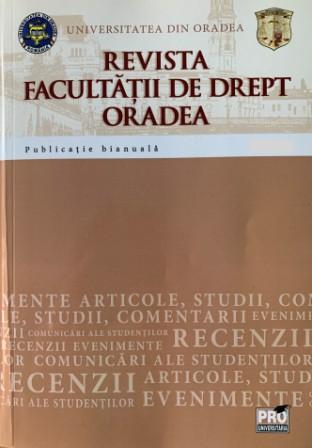
Getting married is a moment of great importance for any person, being considered the second biggest event in a person's life, after birth. This is also why, in addition to the emotional implications of this decision, those who want to take this step also think about what will happen to the assets they own and those they will acquire together after getting married. In this article we will analyze this aspect through the legislation of Romania, Netherlands, USA and we will point out the European directions in the field of matrimonial regimes because, in recent years, the need for standardization has been noted due to the growing number of international couples. It is becoming more and more important to have a good understanding of the substantive rules of each country or state involved, due to this increase in then umber of marriages between people from different states, and the signing of a matrimonial agreement raises complex legal issues, being the obligation of practitioners and the courts to solve them.
More...
Security is a key element in the management of the area without internal border control, which can be achieved through the increasing of external border controls, in order to ensure that borders are only crossed by those who are entitled to. For this purpose, EU border control mechanisms have been established, which objective is different according to the reasons for their establishment. The alleged security needs have led to the profiling of numerous reforms of IT systems, which have strengthened the purposes and conditions of access to retained data. Last but not least, the two new Interoperability Regulations ( 2019/817 and 2019/818 play a fundamental role in the safe management of the European space, allowing different actors, including law enforcement, to refer to the databases of the systems involved. However, little space would seem to be given to the slavish respect for fundamental rights. Almost unconditional access to all databases, involved in the interoperability system, does not guarantee the fulfilment of fundamental rights, such as data protection, the right to privacy and so on. In this scenario, it would seem that security is the only key element in the management of the European area, reducing excessively the guarantees for fundamental rights protection, especially for those who are in a particular vulnerable position such as migrants and refugees.
More...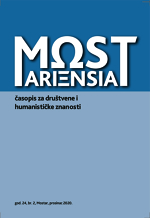
In the practice of teaching and performing a system of yoga, there are those legal issues that relate to the complete process of yoga instructors education. Using the methods of description and analysis, the paper, above all, aims to systematically develop the basic legal context of the education of yoga instructors in the Republic of Croatia. In the elaboration of the stated legal framework, several factors appear that we could mark as dubious and disputable. In this regard, the second goal of the paper, using the case and analysis method, as well as formal-logical analysis within the methodology of legal sciences (method of interpretation of law and argument of analogy), is reflected in further analysis of those issues that are marked dubious and controversial. These issues relate to: authorized licenses and teaching subjects with a comparative overview of other sports and sports activities and specific opportunities for enrolment of participants in the education program for yoga instructors with special reference to the subject of education. The conclusions stated at the end of the research are based on the generally accepted criteria of sports law and theory of law doctrine.
More...
The paper analyses the instance of the authorised person in a lawsuit through the Civil Procedure Law of the Federation of Bosnia and Herzegovina. The authorized person is a contracting representative of the client. The permission about representing is gained on the basis of a contract, so we can talk here about contracting representation. The paper analyses the specific occurences of particular legal provisions that determine who can be the authorised person in a lawsuit according to the amended provisions of the lawsuit.
More...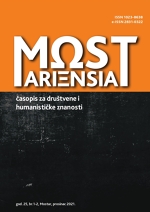
Compensation in the form of an annuity is determined and awarded in cases provided by law for death, bodily injury or infringement of health. Injuries or health disorders often lead to incapacity for work, and thus the loss of various property benefits. The authors deal with the issue of determining the right to compensation in the form of monetary annuity of a minor or unemployed injured party. Damages may relate to lost earnings when the injured party is completely or partially incapable of work or his/her needs are permanently increased or his/her opportunities for advancement are destroyed or limited. The subject of this paper is to determine the right to compensation to an injured party who at the time of damage has not make any earnings nor other income from his/ her own work. When, as a result of a harmful act, the work and advancement of an injured person who was not previously been in the process of work is disabled, and compensation is claimed, we come to many question. Some of them are whether that person would work at all, what job he/she would do and how that work would be valued if his/her life took place in the usual course. From the point of view of compensation, it is necessary to establish under what conditions a person can exercise the right to an annuity as compensation for damage due to lost earnings.
More...